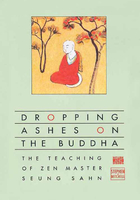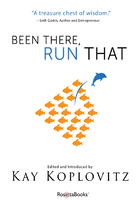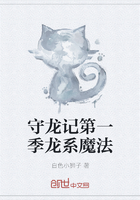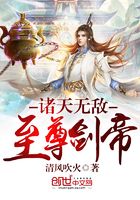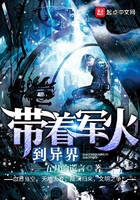magician's choice
Daresay you've never, in your life, read a story written by a vegetable. Well, here's your chance. Not that it's a story. It happened; I was there.
Your narrator and humble servant, Mr. Vegetable.
My name is Emil Delacorte. When all this occurred, I was seventy-three.
You've probably never heard of me, even though I was a headlining magician in the 30's, 40's and 50's; called The Great Delacorte—a title I passed along to my son. I'm sure you've heard of him.
I was doing very well until I had a "cerebrovascular accident" in 1966. That's a "stroke" to you, though I'm more inclined toward "apoplexy"; sounds more colorful. The experience itself, of course, was not so colorful. Though it was, God knows, plenty dramatic.
To me, anyway.
I was on the verge of being sealed into a boiler tank (one of my better escapes) when a blood vessel in my brain popped, depriving said brain of oxygen supply. Hemiplegia (paralysis) took place, commencing the process which converted me into the aforementioned vegetable.
Quite a vision to my audience, I gather. From charming, urbane Delacorte (The Great) I was suddenly reduced to a dizzy, vertigo-locked, nauseous reeler. No doubt startling to the assembled folks. Disgusting too, as a violent headache and vomiting set in.
Not exactly the highlight of my showbiz career.
Soon afterward, permanent paralysis began, the loss of speech, and my one-way ticket to Vegetable City. Sudden death from stroke being rare, I was not permitted the grace of taking my final bow and exiting the stage of life.
Instead, the best fate could offer me was a doctor's instruction to reduce physical and emotional tension while I waited for as much recovery as possible.
Fourteen years later, when these events transpired, I was still waiting.
By dint of my son's loving kindness, I was not dispatched to some asylum but permitted to reside in his home, a motionless figure customarily located in the study—or, as I prefer to call it, The Magic Room.
There I sat ensconced in my wheelchair, a staring obelisk, an effigy of what I'd been, a statue entitled Impotence (in more ways than one) or, better still, Up On the Shelf for Good. A voiceless, torpid lump, ostensibly brainless.
There, you see, is the rub. For the real torment was that in that dumb shell I existed in, an active and observant brain was struggling for the means to express itself. That is the horror of a stroke, believe me.
Perhaps if this had happened ten or twenty years later, there might have been some medical-surgical procedure by which I could have ended my night- (and day-) mare.
Then again, perhaps not. Even my son, devoted as he was to me, might have found it inescapable to A&F (Accept and Forget). Who could have blamed the man? I had become more a piece of furniture than a family member. Not hard to take a piece of furniture for granted.
I go on at length about my plant-kingdom persona so you will understand how all these strange events could have taken place in my presence without a single person involved giving it a second thought that I was there. But then, do we concern ourselves with the observational capacities of a turnip?
Anyway, Maximilian (my son) had enough problems of his own, as you will discover.
A few more explanatory comments before I launch into my account of that fateful day.
Because of Maximilian's loyalty to me, I had a nurse (one Nelly Washington) who stayed with me constantly (in the beginning, anyway), providing those attentions I could not request but obviously required—eating and elimination to the fore.
Nelly was no Venus but she had an inner beauty of compassion, a good deal of patience, and (luckily for her as well as for me) an abundant sense of humor. Most of all, God bless her giant heart, she never allowed me to remain defeated or helpless. She was a rock of reassurance on which I wobbled constantly until some semblance of hope oozed back into my brain—along with a few restorative drams of blood.
I'm glad she happened to be absent on the day it all took place, although in retrospect, I realize that it probably was no accident.
After all, she would have been an obviously sentient witness to the mania which occurred.
One thing about residing in a useless body in the sole company of one's brain: it gives one time to appraise said brain, appreciate its true capacities, and, eventually, train it to perform. In this way I was able to educate my brain to remember everything I saw around me, thus enabling me to write down this event in full detail.
This is fortunate because the events I will describe took place fourteen years ago. I will explain, in due course, why I had to wait so long to disclose them.
But first, let me sketch in the environment for the play, or—most appropriately—the setting for the magic show. For magic is the dark thread which binds together the tapestry of this crazed and homicidal episode, this lethal interval of time.
This period of total lunacy.
This happened in the home where my son had lived for thirty-seven of his fifty-two years. My wife Lenore gave birth to him in 1928, dying ten years later giving birth to our second (stillborn) son.
As indicated, Maximilian had been (since my "accident" made it impossible for me to perform) The Great Delacorte. He had been my assistant since he was seventeen, and knew my act as well as I did, performing on his own as well as continuing to help me, reaching full theatrical bloom when he was thirty-seven and assumed my stage name.
Living in this house were two other people, not counting the houseman and cleaning woman, who were also not present on that day. Coincidence? My aged, wrinkled ass it was.
The first of these two people was Max's wife Cassandra, forty-one, a woman of uncommon beauty, intelligence, and nastiness. She had been married to Max for nine years, his assistant in the act for eight.
Cassandra had two goals in life. One was to get my ancient bones out of the house and into a distant vegetable farm.
The other was … well, that must wait, or we have no tale.
The third resident of Delacorte Hall (exclusive of Nelly and the two servants, of course) was Cassandra's brother Brian, thirty-five, an employee of my son's.
The house was (still is) in Massachusetts, standing in the center of a twenty-two-acre plot of woodland, set back approximately a quarter of a mile from the road. (Forgive the exactitude of detail, it's a habit I'm unable to overcome.)
Described briefly (I'll try, anyway), Delacorte Hall was (is) French Provincial in design, a truly splendid two-story structure which I'd had built in 1943, a choice earning year for me.
The house had (has) seven bedrooms and baths, a modest theater, a swimming pool below, a large kitchen, formal dining room, a large living room, and the rooms in which the hours of insanity took place—my study and, later, Max's.
The Magic Room.
Why do I call it that? Because it was a masterpiece of prearrangements, a cornucopia of gimmicks and arcana. I had begun the process in 1945 for my own pleasure. Later, Max had added to it; so much so that, at the time of these events, even I was unaware of what he'd done to the room, my earlier years of invalidism having been spent in my bedroom. It was only in the late sixties that Max saw to it that Nelly brought my wheelchair on a daily basis to TMR, knowing the pleasure I had always taken in it when I was a real person instead of a two-eyed potato.
The study then; The Magic Room.
Thirty feet in length, twenty in width, many-windowed with one particularly large picture window affording a spectacular view of the countryside behind the house, a small lake in the distance, a gazebo on its shore.
The study had always been luxuriously appointed. Built-in shelves lined two walls, many filled with leather-bound scrapbooks: my reviews and news clippings, and Max's. The remainder of the shelves were filled with books almost exclusively devoted to magic history and/or methodology.
On a third wall hung framed lobby posters of my and Max's more notable appearances.
A fieldstone fireplace (quite massive) stood against the fourth wall, on its mantelpiece a collection of relics, souvenirs, and objets d'art which Lenore and I—and, later, Max—had collected through the years. Also standing on it was a silver candelabra with three black candles, next to it a silver matchbox.
Fret not, dear reader, these details are of consequence, all of them a valid part of the account.
Where was I?
Yes, the fireplace. Above the mantelpiece hung several items.
Two were large oil paintings, one of my lovely Lenore (I blessed my son for leaving it there), the other of an equally lovely (perhaps stunningly beautiful would be more accurate a description) young woman: Adelaide, Max's first wife, who died in 1963.
Also mounted above said mantelpiece was a set of English dueling pistols, circa 1879; a pike from the nineteenth-century Spanish Army; and an African spear and blowgun—all to play their roles in the murderous exploits soon to commence.
Near the fireplace was my (then Max's) desk, eighteenth-century French, its glossy surface seven feet by four feet, on it an arrangement of relics, souvenirs, and objets d'art from my (our) collection. A telephone and a silver-plated decanter (with glass) completed the articles on the desk. Behind it was a high-backed revolving chair, upholstered in black leather.
Other items to be mentioned: a handsome brass-and-teakwood bar, glasses and silver ice bucket on its top; two red leather easy chairs with end tables; an extremely large (two feet in diameter) antique world globe.
Finally, a quintet of items vital to the narrative.
One: a standing lobby display poster—a life-size photograph of Max in top hat and tails, a placard reading:
THE GREAT DELACORTE
"In Touch With the Mysterious."
Two: an ornately decorated Egyptian burial case, standing upright, its lid open.
Three: a suit of armor (sixteenth-century German), its faceplate shut.
Four: a lever-operated guillotine (a miniature version of the one used during the French Revolution), its blade raised to the top as though positioned to decapitate some doomed marquis.
Five: set upright on its lever-operated base, a mahogany casket with a window to reveal the head and shoulders of the deceased.
Inside the casket were what appeared to be the head and shoulders of my son—Maximilian Delacorte, handsome (got my looks), vandyke-bearded (an ostentation I eschewed), eyes shut, expression imperious, the very image of a Spanish grandee lying in state.
How's that for memory?
Anyway, dear reader, mark these things.
All were integral to the madness.
How shall I typify what happened? Passion play? Somewhat. Weird tale? Indubitably. Horror story? Pretty close. Grotesque melodrama? Certainly. Black comedy? Your point of view will determine that. Perhaps it was a combination of them all.
Suffice to say that the events which took place in the home of my son on the afternoon of July 17, 1980, were, to say the least, singular.
So to the story. A chronicle of greed and cruelty, horror and rapacity, sadism and murder.
Love, American style.

